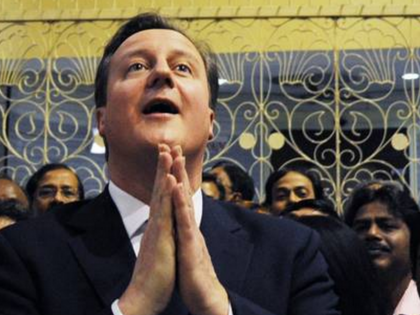
British Prime Minister David Cameron appears to have ditched the government’s controversial pledge to make spending 0.7 percent of GDP a legal requirement. Nick Clegg revealed that the promise, which had proved unpopular with many Conservatives will not appear in the Queen’s speech next Wednesday.
The Sun reports that the Deputy Prime Minister confirmed that legislation to enshrine the rule will not be announced, meaning it will not be taken forward before the next election.
In 2010 the Conservatives pledged to raise overseas aid, but in coalition negotiations they went further and agreed to a Liberal Democrat plan to put in place legislation forcing future governments to never spend less than 0.7 percent of GDP.
The pledge was a hollow gesture as any future government could reverse the legislation with a simple majority in Parliament.
At a speech in London, Nick Clegg said: “As of last year, we are spending 0.7 per cent, and that is a huge achievement.
“But it’s an open secret that the Liberal Democrats wanted to take the additional step of legislating – which is why it’s in the Coalition Agreement.
“As you know we have not been able to convince our Coalition partners to do that.
“But the Liberal Democrats have not given up – we are going to keep pushing to get 0.7 per cent into law.”
The Deputy PM also defended sending money to Nigeria, despite its enormous oil wealth. He said: “You can’t judge a country’s progress by its economic statistics alone.”
Dropping the policy may be a response to pressure from media outlets and campaigners. Last month Breitbart London reported figures that show £1 in every £8 spend on overseas aid around the world comes from Britain.
This figure included a rise from £8.3bn to £10.6bn in just one year. The money was used to fund a variety of causes including £280m to India, which was described as “peanuts” by the countries Finance Minister.
India has an extensive military and space programme, raising the possibility that Britain was financing the countries poor in order to allow the Indian government to pay for a dangerous arms race with Pakistan.
Dropping the pledge is probably in the interests of both sides as it creates ‘clear blue water’ between the two at the General Election. Allowing them to both take credit for increasing the spending but also enabling them to campaign on slightly different issues.

COMMENTS
Please let us know if you're having issues with commenting.